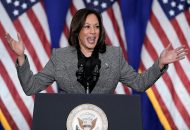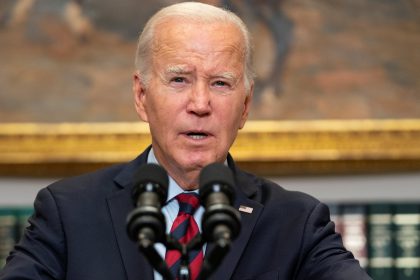Biden’s Buy American Order Gets Mixed Industry Reaction

WASHINGTON — President Joe Biden’s executive order Monday to boost American manufacturing is receiving a warm welcome from some major industry associations but words of caution from U.S. trade partners.
The order requires federal agencies to purchase more of their equipment from American manufacturers.
Biden described the order as an effort to revitalize the economy and to make the United States less dependent on foreign countries, such as for medical supplies to fight the COVID-19 pandemic. China supplied much of the personal protective equipment and the respirators used in the United States in the past year.
The U.S. economy lost about 543,000 manufacturing jobs since February 2020, according to the Bureau of Labor Statistics.
Officials from manufacturing associations said Biden’s “Buy American” order would close loopholes in previous international trade agreements while setting a course for a stronger U.S. manufacturing sector.
“When we eliminate loopholes that allow billions of taxpayer dollars to go to imported products rather than American made products, we can truly ‘Build Back Better,’” Philip K. Bell, president of the Steel Manufacturers Association, said in a statement. “Our nation’s infrastructure should be built by Americans for Americans using domestic steel that is sustainably melted and poured. Today’s commitment by President Biden supports that goal.”
Buy American provisions can be found in a patchwork of federal laws dating back to 1933 but always with exceptions that upset some U.S. manufacturers.
In the latest examples, government contracts allow the requirement to purchase American products to be waived by the contracting officer if the domestic product is 25% or more expensive than an identical foreign-sourced product, if the product is not available domestically in sufficient quantity or quality or if the waiver is in the public’s interest.
In addition, the president can waive Buy American provisions under terms of international trade agreements.
Biden’s order seeks to eliminate the loopholes by redefining domestic content and measurements of quality in products purchased by the government. It also would increase the threshold for the percentage of products that must be purchased domestically.
The Office of Management and Budget would get a new senior officer to oversee which contractors can receive waivers. The new officer would be assigned to reduce the number of waivers.
In addition, federal agencies are directed under the executive order to reach out to small American manufacturers that often are overlooked in government contracts.
Scott Paul, president of the Alliance for American Manufacturing, said, “The law should mean what it says: an American product should be truly made in America.”
Despite the order’s encouraging outlook, some manufacturers are taking a wait-and-see attitude.
“We are carefully reviewing all of President Biden’s new executive orders, including yesterday’s Buy America initiative and assessing the impacts they may have on our members,” Ann Wilson, vice president of government affairs for the Motor and Equipment Manufacturers Association, told The Well News.
The executive order advances Biden’s campaign pledge to increase government purchases of American goods by $400 billion.
“President Biden is ensuring that when the federal government spends taxpayer dollars they are spent on American made goods by American workers and with American-made component parts,” a White House fact sheet said.
The order sets a lofty goal of implementing the new procurement procedures within 180 days, despite elusive attempts at similar standards in previous administrations.
Many supply chains for the most sophisticated products, such as aircraft, computers and high-tech equipment, use parts and components from manufacturers around the world. Some U.S. corporations are saying they would need to reconfigure their entire supply network under strict Buy American regulations.
In addition, U.S. trade partners are cautioning against disruptions in international contracts and relations.
Canadian Foreign Affairs Minister Marc Garneau said in a CBS New interview that strict new Buy American rules “might jeopardize the very strong and integrated supply chains that exist between our two countries.”






















